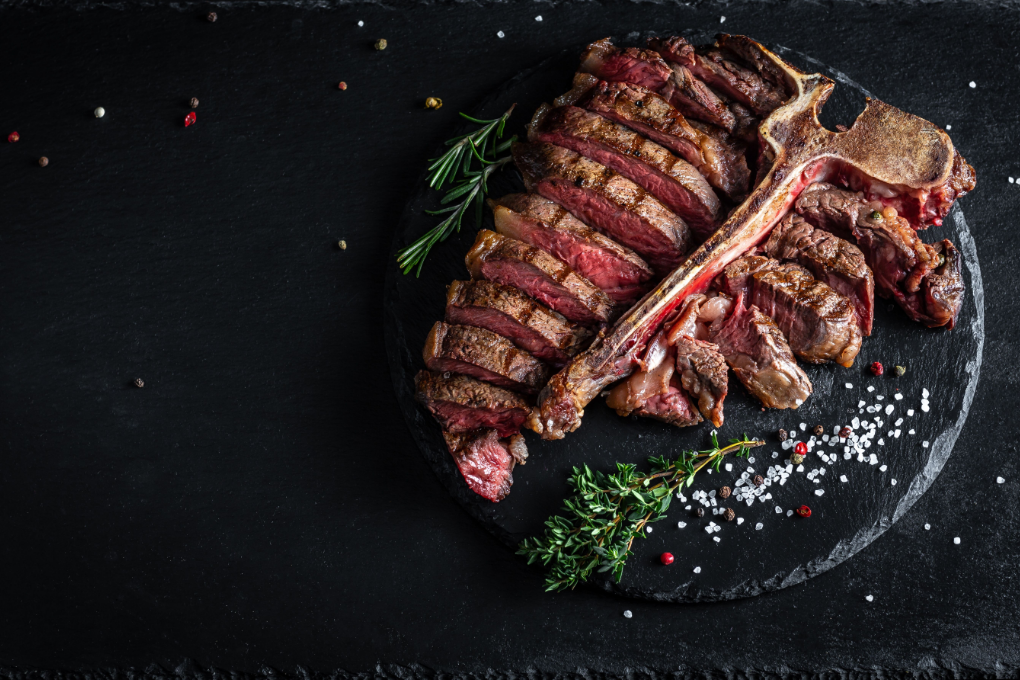
Can You Still Eat Beef and Be Heart-Healthy?
Is beef heart healthy? Red meat has had a rough ride in recent decades. It’s been linked to everything from heart disease to early death, with no shortage of headlines declaring it public enemy number one. But a recent meta-analysis has taken a more measured look at one particular type of red meat: lean, unprocessed beef.
The study examined 20 randomised controlled trials (RCTs) involving over 1,000 adults. Researchers focused on key cardiovascular disease (CVD) risk factors, including blood lipids like LDL and HDL cholesterol, triglycerides, and blood pressure. Essentially, the study found that beef is not quite the villain it’s made out to be.
What the Study Looked At
This was a systematic review and meta-analysis. A trial design that is about as robust as nutritional evidence gets. Researchers pooled data from high-quality trials that compared diets with varying amounts of lean beef. The aim was to isolate beef’s impact on heart health. The study aimed to avoid the usual confusion that comes from lumping it together with other red meats or with heavily processed sausages and burgers.
Most participants were either healthy or had common metabolic issues such as high cholesterol or type 2 diabetes. The average beef intake in the high-beef groups was around 160 grams per day, roughly two servings. Which, in my opinion, is quite a lot of beef. Comparators were diets with little or no beef.
The Verdict on Cholesterol and Blood Pressure
The key takeaway was that eating lean, unprocessed beef had no meaningful impact on most heart health markers.
Total cholesterol, HDL and triglycerides stayed broadly the same, regardless of how much beef people ate. Both systolic and diastolic blood pressure also remained broadly unchanged. There was a very small increase in LDL cholesterol, around 2.7 mg/dL or 0.07mmol/L. This might sound concerning. However, this is a trivial increase. For context, that’s the kind of variation you might get from eating a slightly different breakfast.
Even this tiny effect on LDL was mostly driven by one influential study. When that study was removed in a sensitivity analysis, the difference disappeared.
It is also worth noting that lean beef tends to be higher in cholesterol-lowering fats (monounsaturated and polyunsaturated) than cholesterol-raising saturated fats. Many of the included trials also tried to match saturated fat across diets. This makes it unlikely that saturated fat was a major driver.
So, Is Beef Heart Healthy?
The answer, based on this analysis, is that it is certainly not harmful. At least not in the form studied here. Eating lean, unprocessed beef in moderate amounts does not appear to harm cholesterol levels or blood pressure. In fact, it can be a useful source of high-quality protein, iron, zinc, and vitamin B12. These are nutrients that many people are deficient in.
Of course, this does not mean you should eat steak every day and skip the vegetables. A balanced diet is still key, and occasionally swapping beef for fish or plant-based proteins is still a good idea. But the idea that any amount of beef will clog your arteries and cut your life short is not supported by this data.
But What About the Funding?
Yes, the study was funded by the Beef Checkoff, an industry body. That should always raise eyebrows. However, the researchers clearly disclosed this. The study used rigorous methods and followed gold-standard protocols like PRISMA. In fact, over 70 per cent of the industry-funded trials included were rated as low risk of bias. That was better than some of the non-industry-funded ones.
This does not mean we take the results at face value without scrutiny. However, we should be cautious about dismissing them just because of who paid for the research. The rigour was there.
Where This Leaves Us
Nutritional science is messy, and red meat is a prime example. Much of the scare comes from observational studies that cannot separate diet from lifestyle. People who eat lots of red meat often do fewer healthy things overall. They tend to exercise less, smoke more, and eat fewer vegetables. That makes it tricky to tease out cause and effect.
What this meta-analysis gives us is a cleaner look at the question. And the answer, at least for lean, unprocessed beef, appears to be that there is no major impact on lipids or blood pressure. It is important to mention that this study did not look at hard outcomes. It did not, for example, tell us whether people who ate more lean beef were more likely to die or a heart attack or stroke. It merely points out that people who ate lean beef had no change in the risk factors for heart disease and stroke.
If you enjoy beef, there is no need to swear it off entirely. Choose lean cuts, don’t char it to oblivion, and pair it with plenty of plant-based foods. A steak night now and then, as part of an overall healthy lifestyle, is unlikely to be the thing that tips the balance.
Nutrition is full of strong opinions. But evidence beats ideology. This latest study adds a little sanity back into the red meat debate. It is not a green light to live on burgers, but it is a reminder that context, portion size, and overall diet quality matter far more than demonising single foods.
And if someone tries to guilt you over your Sunday roast, you now at least have a well-referenced comeback.

About the Author
Dr J Hugh Coyne is a private GP at Coyne Medical in London, specialising in family medicine, preventative care and screening. Passionate about patient-centred healthcare, he provides expert guidance on health screenings and personalised wellness plans. Dr Hugh also uses his experience in preventative health and family medicine to act as a Medical Advisor to MedTech companies.
📍 Coyne Medical | Fulham, London SW6
📅 Book an appointment today to discuss your health needs!